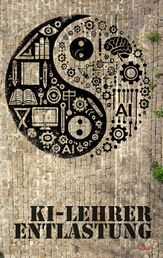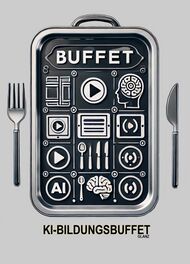Sentence Constituents: Unterschied zwischen den Versionen
Glanz (Diskussion | Beiträge) Die Seite wurde neu angelegt: „{{#ev:youtube | https://youtu.be/RZXoUjLG1io | 300 | center}} {| align=center {{:D-Tab}} '''Sentence Constituents''' {{o}} Sentence Constituents - Subj…“ |
Glanz (Diskussion | Beiträge) Keine Bearbeitungszusammenfassung |
||
| Zeile 18: | Zeile 18: | ||
[[Datei:Flagge_Deutschland_MOOC_it_Kopie.png|70px|center|link=Satzglieder]] | [[Datei:Flagge_Deutschland_MOOC_it_Kopie.png|70px|center|link=Satzglieder]] | ||
[[Datei:Flagge_United_Kingdom_GB_MOOC_it.png|70px | [[Datei:Flagge_United_Kingdom_GB_MOOC_it.png|70px|center|link=Sentence Constituents]] | ||
Version vom 24. Oktober 2023, 10:49 Uhr


Sentence Constituents


Introduction to Sentence Constituents
Hello! In this aiMOOC, we will dive deep into the world of sentence constituents in the English language. Sentence constituents are the components that make up a sentence. They help us understand the structure and meaning of sentences. Let's get started!
What are Sentence Constituents?
Sentence constituents are the individual words or groups of words that function as a single unit within a sentence. These can be as simple as a single word or as complex as a phrase or clause. Understanding these constituents is essential for understanding the structure of English sentences.
Types of Sentence Constituents
There are several types of sentence constituents, including:
- Subject: The person, place, thing, or idea that the sentence is about.
- Predicate: What the subject is doing or what is happening to the subject.
- Object: The entity that is affected by the action of the subject.
- Adverbial: Provides additional information about the action, such as how, when, or where it happened.
- Complement: Provides more information about the subject or object.
Importance of Sentence Constituents
Understanding sentence constituents is crucial for several reasons:
- It helps in parsing sentences, which is the process of breaking down a sentence into its individual components.
- It aids in understanding the grammar and structure of the English language.
- It's essential for those learning English as a second language to grasp the nuances of sentence construction.
For more detailed information, you can visit the Wikipedia page on Sentence (Linguistics).
Offene Aufgaben (Auswahl)
Leicht
- Identify Constituents: Read a short paragraph and identify the subjects, predicates, and objects in each sentence.
- Match Constituents: Match the sentence constituents with their definitions.
- Sentence Construction: Construct a sentence using given constituents.
Standard
- Analyze Sentences: Analyze complex sentences and identify all the constituents.
- Transform Sentences: Transform simple sentences into complex ones by adding different constituents.
- Constituent Quiz: Take a quiz on sentence constituents.
Schwer
- Write a Story: Write a short story ensuring the correct use of all sentence constituents.
- Compare Languages: Compare the sentence constituents in English with another language of your choice.
- Teach Constituents: Prepare a lesson plan to teach sentence constituents to someone else.


Mündliche Prüfung
- Sentence Breakdown: Break down a complex sentence and explain each constituent.
- Real-life Application: How do sentence constituents help in understanding real-life conversations?
- Constituents in Literature: Analyze a passage from a literary work and identify the sentence constituents.
- Constituents in Other Languages: How do sentence constituents in English compare to those in another language you know?
- Importance of Constituents: Discuss the importance of understanding sentence constituents in effective communication.
Interaktive Aufgaben
Kreuzworträtsel
| Subject | Who or what the sentence is about? |
| Predicate | What action is the subject taking or what is happening to the subject? |
| Object | Who or what receives the action of the subject? |
| Adverbial | Which constituent provides additional information about the action? |
| Complement | Which constituent provides more information about the subject or object? |
Quiz: Teste Dein Wissen
Which constituent tells us who or what the sentence is about? (Subject) (!Predicate) (!Object) (!Adverbial)
Which constituent provides additional information about the action? (Adverbial) (!Subject) (!Predicate) (!Object)
What does the predicate in a sentence describe? (Action of the subject) (!Who or what the sentence is about) (!Who or what receives the action of the subject) (!Additional information about the subject or object)
Memory
| Subject | Sentence's main focus |
| Predicate | Action or state of the subject |
| Object | Receives the action of the subject |
| Adverbial | Provides more details about the action |
| Complement | Gives more information about subject or object |
LearningApps
Lückentext
OERs zum Thema
Links
Teilen - Diskussion - Bewerten
Schulfach+


aiMOOCs



aiMOOC Projekte


YouTube Music: THE MONKEY DANCE

Spotify: THE MONKEY DANCE

Apple Music: THE MONKEY DANCE

Amazon Music: THE MONKEY DANCE

The Monkey Dance SpreadShirtShop

|
|
|


Children for a better world >> Förderung der AI Fair-Image Challenge
Fair-Image wird von CHILDREN JUGEND HILFT! gefördert und ist mit der deutschlandweiten AI Fair-Image Challenge SIEGERPROJEKT 2025. Alle Infos zur Challenge hier >>. Infos zum Camp25 gibt es hier. Wenn auch Ihr Euch ehrenamtlich engagiert und noch finanzielle Unterstützung für Eurer Projekt braucht, dann stellt gerne einen Antrag bei JUGEND HILFT.











































